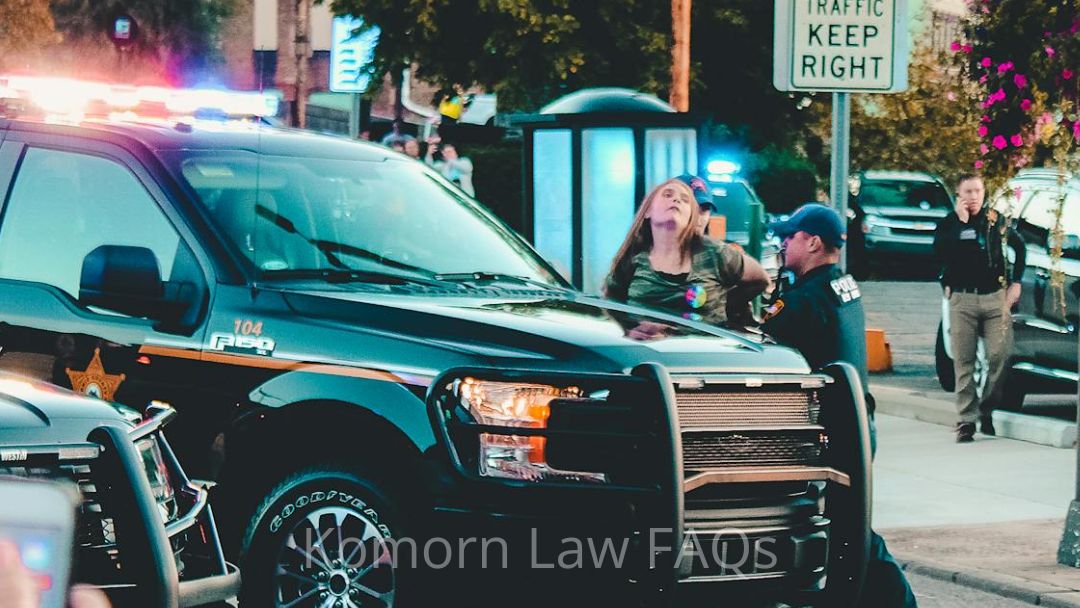Michigan Criminal Laws FAQs Assault and BatteryAccording to Michigan State Law, Assault and Battery are distinct but often related offenses. There isn't one single statute that explicitly defines both terms together. Instead, their definitions have evolved through...

Other Bodily Fluid House Hearing – HB-4391- Update 5-22-25
Michigan House Hearing
HB-4391 Saliva Test Update 5-22-25
Watch the hearing or read the summary.
Click here or image below to see video
FYI: Marijuana although voted to be legalized is still classified as a controlled substance in the State of Michigan and Federally.
More ways to take your money.
SUMMARY:
House Bills 4390 and 4391 would amend the Michigan Vehicle Code to allow for roadside oral fluid (i.e., saliva) tests to screen drivers for the presence of controlled substances, including marijuana. These tests, referred to in the bills as preliminary oral fluid analysis, would be added to several provisions that now apply to preliminary chemical breath tests used to screen
for alcohol. The term other bodily fluid (which includes saliva) would be added to several provisions that now refer to the testing of, or to test results for, an individual’s blood, breath, or urine. The bills are described together below.
Other bodily fluid
Other bodily fluid would mean fluid from the human body capable of revealing the presence of controlled substances or their metabolites, including oral fluid.
Preliminary oral fluid analysis would mean the on-site taking of a preliminary oral fluid test, performed by a peace officer, from the oral fluid of a person for the purpose of detecting the presence of a controlled substance, as that term is defined in section 7104 of the Public Health Code.1
[This definition is currently in the law, except that current law requires the tests to be performed by a certified drug recognition expert, a restriction that applied to a roadside drug testing pilot program conducted in five counties in 2017 and 2018 (Phase 1)2 and more broadly in 2019 and 2020 (Phase 2).3]
Currently, a peace officer may require a person to submit to a preliminary breath test if, among other things, the officer has reasonable cause to believe that the person was operating a vehicle while their ability to do so was affected by the consumption of alcohol or a controlled substance
or that the person was operating a commercial motor vehicle while their blood, breath, or urine contained any measurable amount of alcohol or a controlled substance.
The bills would amend the provision concerning operating a commercial motor vehicle to also apply to any measurable amount of alcohol or controlled substances contained in other bodily fluid. Similarly, provisions that currently apply to a request by a peace officer to submit to a preliminary breath test or to penalties for refusing a preliminary breath test also would apply to a request or refusal to submit to a preliminary oral fluid analysis.
The following would apply to a preliminary oral fluid analysis administered under the bills:
- It could lead to an arrest based on its results.
- The results would be admissible in a criminal prosecution for certain drunk or drugged driving violations or in an administrative hearing for one or more of the following purposes:
To assist the court or hearing officer in a determining a challenge to the validity of an arrest.
- As evidence of the presence or nonpresence of a controlled substance in the defendant’s oral fluid if offered by the defendant to rebut testimony elicited on cross-examination of a defense witness that a preliminary oral fluid analysis showed the presence of a controlled substance that was not found to be present when a chemical test of the defendant’s blood or urine was administered under the act.
- As evidence of the presence or nonpresence of a controlled substance in the defendant’s oral fluid if offered by the prosecution to rebut testimony elicited on cross-examination of a prosecution witness that a preliminary oral fluid analysis showed no presence of a controlled substance that was found to be present when a chemical test of the defendant’s blood or urine was administered under the act.
- The person would remain subject to provisions of the act pertaining to chemical tests and administrative hearings regarding chemical tests.
- A person who refuses to submit to a preliminary oral fluid analysis would be responsible for a civil infraction.
- Each bill would take effect 90 days after its enactment, and neither could take effect unless both were enacted.
MCL 257.43b and 257.625a and proposed MCL 257.36d
An OUI charge is very serious in Michigan can have serious consequences affecting your job, driving priviledges, finances, and even your freedom. It’s crucial to understand your rights and explore all available legal options.
Contacting an experienced criminal defense attorney as soon as possible is essential. Since 1993 Attorney Michael Komorn lead trial attorney in both state and federal courts has provided a strong defense above and beyond for clients. Contact Komorn Law and Call our office 248-357-2550 for a case evaluation.
Komorn Law
Charged Driving High? – Better Call Komorn
Komorn Law
Areas of Service
We fight for our clients throughout the State of Michigan and Northern Ohio.
Here are some court contacts we frequently handle cases.
Oakland County
If you are facing any legal charges in Oakland County and need to hire an attorney, call our Office (248) 357-2550. If you need to contact the court, here is the information:
- Telephone Number: (248) 858-0344
- Address: 1200 N Telegraph Rd, Department 404, Pontiac, MI 48341-0404
- Website:
Oakland County 6th Judicial Circuit Court
Macomb County
If you are facing any legal charges in Macomb County and need to hire an attorney, call our Office (248) 357-2550. If you need to contact the court, here is the information:
- Telephone Number: (586) 469-5150
- Address: 40 N. Main Street, Mt. Clemens, MI 48043
- Website:
Macomb County 16th Judicial Circuit Court
Wayne County
If you are facing any legal charges in Wayne County and need to hire an attorney, call our Office (248) 357-2550. If you need to contact the court, here is the information for the Third Circuit Court (Wayne County):
- Telephone Number (Civil/Family): (313) 224-5510
- Telephone Number (Criminal): (313) 224-5261 or (313) 224-2503
- Address (Civil/Family): 2 Woodward Avenue, Detroit, MI 48226
- Address (Criminal): 1441 St. Antoine, Detroit, MI 48226
- Website:
https://www.3rdcc.org/
Kent County
If you are facing any legal charges in Kent County and need to hire an attorney, call our Office (248) 357-2550. If you need to contact the court, here is the information:
- Telephone Number: (616) 632-5220
- Address: 180 Ottawa Avenue NW, Grand Rapids, MI 49503
- Website:
Kent County
Traverse County
If you are facing any legal charges in Traverse County and need to hire an attorney, call our Office (248) 357-2550. If you need to contact the court, here is the information for the 13th Circuit Court (which includes Traverse County):
- Telephone Number: (231) 922-4701
- Address: 328 Washington Street, Suite 300, Traverse City, MI 49684
- Website: Traverse City 13h Circuit Court
Monroe County
If you are facing any legal charges in Monroe County and need to hire an attorney, call our Office (248) 357-2550. If you need to contact the court, here is the information:
- Telephone Number: (734) 240-7020
- Address: 106 E First Street, Monroe, MI 48161
- Website: Monroe County 38th Circuit Court





